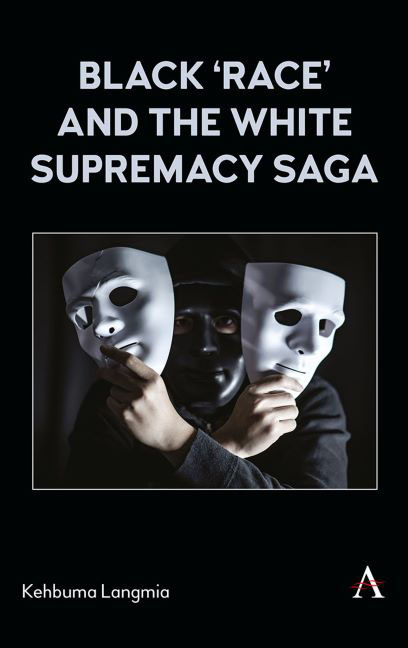Book contents
- Frontmatter
- Dedication
- Contents
- Foreword
- Acknowledgments
- 1 The Shifting Sands on the Feet of Black People
- 2 Shadow of Colonialism and Slavery on Black People
- 3 Black People and COVID-19
- 4 Africans and Mass Immigration
- 5 Blacks and the Politics of Demo-“Crazy” and Development
- 6 Victimhood and the Identity Crisis: Blacks and the Epistemology of Freedom
- 7 Black Status and Physical Threats
- 8 The Epistemology of Black Poverty, Resistance, and Resilience
- 9 The Politics of Europe/China Dependency on Africa
- 10 False Western Epistemological Dominance
- References
- Index
5 - Blacks and the Politics of Demo-“Crazy” and Development
Published online by Cambridge University Press: 13 April 2024
- Frontmatter
- Dedication
- Contents
- Foreword
- Acknowledgments
- 1 The Shifting Sands on the Feet of Black People
- 2 Shadow of Colonialism and Slavery on Black People
- 3 Black People and COVID-19
- 4 Africans and Mass Immigration
- 5 Blacks and the Politics of Demo-“Crazy” and Development
- 6 Victimhood and the Identity Crisis: Blacks and the Epistemology of Freedom
- 7 Black Status and Physical Threats
- 8 The Epistemology of Black Poverty, Resistance, and Resilience
- 9 The Politics of Europe/China Dependency on Africa
- 10 False Western Epistemological Dominance
- References
- Index
Summary
One of the vexing realities of life on the continent of Africa that is affecting development initiatives is the invincible presence of tribalism and ethnocentrism. Various enclaves and abodes have become so entrenched in identity politics of representation that they have become intolerant to people from outside their enclaves. This has constituted one of the tumultuous episodes in the drama of survival after independence in Africa. It can easily be assumed, based on published Western books, that it is the West that brought demo‘craZy’ to Africa: “European authors created a problem in the interpretation of African history by seeking to impose their own ethnocentric biases onto the discovery of African reality. They wanted to speak for Africa, rather than allow Africa to speak for itself “ (Asante 2007, p. xii). With Africa not able to speak for herself and chart the path of growth according to her specific needs and goals, economic and social developments have taken a toll. If we carefully read Chancellor Williams, between the lines, we will unhesitatingly notice that he has consistently argued with evidence that if Western democracy is symbolically related in any way shape or form with civilization, then it all started in Africa (Williams 1987) and so the West ought to have learned from Africa, but “Western writers declared Africans to be without history” (Asante 2007, p. xii). They claim that the continent was barbaric and warlike, and so their presence was a blessing that should be welcomed. The preponderance of Western literature and pamphleteering seeking to speak for Africa and Africans has created irreparable confusion that has sparked ethnic tensions among the people. The introduction of class hierarchy and discrimination, indigenous to the West but less common to Africans prior to colonization, is the greatest damage to African psyche that has made them turn against each other in the inordinate quest for illusive power grab and materialism. Consequently, Africans, those trained through Western education and those trained in Africology are caught at the crossroads of power and influence. Those who have deliberately and consistently tread on the academic footpath of the West have cultivated a sense of self-worth, pride, and valor that has put them at odds with those who are not both epistemologically and axiologically speaking clinging to Afrocentric values.
- Type
- Chapter
- Information
- Black 'Race' and the White Supremacy Saga , pp. 73 - 86Publisher: Anthem PressPrint publication year: 2024

